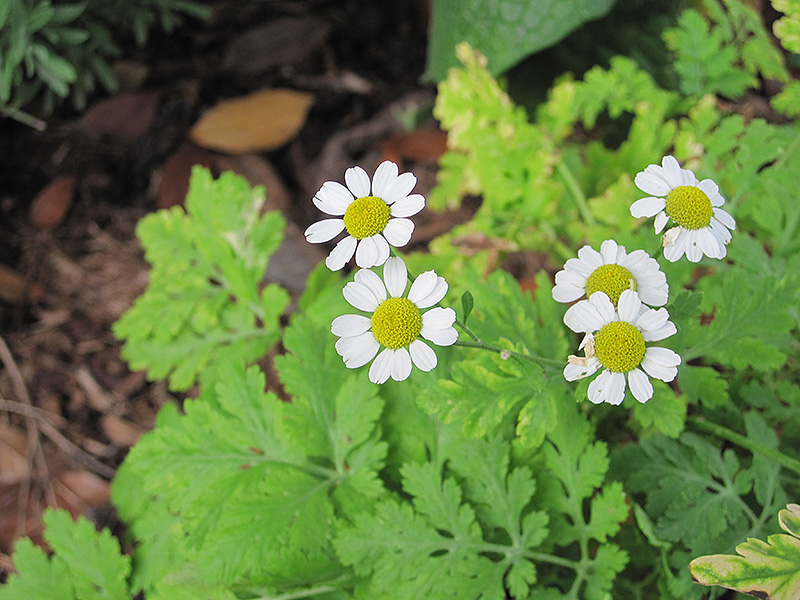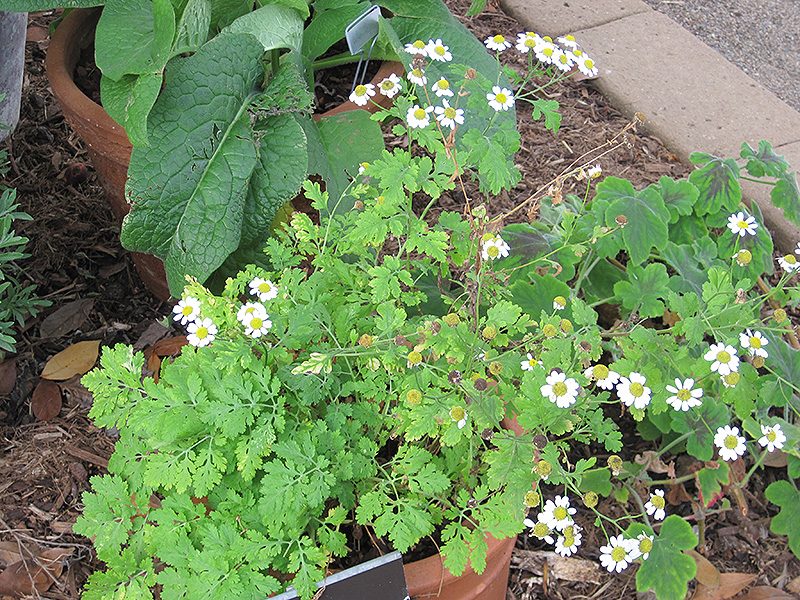Plant Search
Height: 18 inches
Spacing: 8 inches
Sunlight:
![]()
Hardiness Zone: 3a
Ornamental Features
Feverfew has masses of beautiful yellow daisy flowers at the ends of the stems from early summer to late fall, which are most effective when planted in groupings. The flowers are excellent for cutting. Its deeply cut ferny pinnately compound leaves remain dark green in color throughout the season.
Landscape Attributes
Feverfew is an herbaceous perennial with a mounded form. It brings an extremely fine and delicate texture to the garden composition and should be used to full effect.
This plant will require occasional maintenance and upkeep, and should be cut back in late fall in preparation for winter. It is a good choice for attracting butterflies to your yard, but is not particularly attractive to deer who tend to leave it alone in favor of tastier treats. Gardeners should be aware of the following characteristic(s) that may warrant special consideration;
- Self-Seeding
Feverfew is recommended for the following landscape applications;
- Mass Planting
- General Garden Use
- Herb Gardens
Planting & Growing
Feverfew will grow to be about 15 inches tall at maturity, with a spread of 12 inches. When grown in masses or used as a bedding plant, individual plants should be spaced approximately 8 inches apart. It grows at a fast rate, and under ideal conditions can be expected to live for approximately 3 years. As an herbaceous perennial, this plant will usually die back to the crown each winter, and will regrow from the base each spring. Be careful not to disturb the crown in late winter when it may not be readily seen!
This plant should only be grown in full sunlight. It prefers to grow in average to moist conditions, and shouldn't be allowed to dry out. It is not particular as to soil type or pH. It is highly tolerant of urban pollution and will even thrive in inner city environments. Consider applying a thick mulch around the root zone in winter to protect it in exposed locations or colder microclimates. This species is not originally from North America.
A NetPS Plant Finder tool



